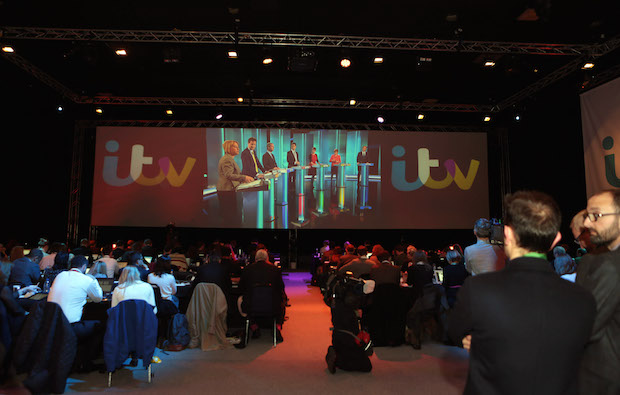If elections are job interviews, as party leaders like to say, then this interview has so far failed to assess applicants on the one part of the job description that most have no experience in – foreign policy and security. This absence was at its most conspicuous this week when the TV debate didn’t spare even a cursory nod to global issues.
Maybe the lack of contention on foreign policy is an implicit tribute to the Conservatives’ steady hand on the tiller? If not, let’s hear why. If so, the Conservatives have been surprisingly, some might argue laudably, reluctant to invoke global insecurity as an issue. Security concerns, global instability, and terrorism are important themes that normally mesh well with a serious, strong-headed, incumbent government.
Looking at the seven leaders on Thursday, you would be hard-pressed to pick more than one or two who clearly have the credibility expected of a G7 leader. Speaking from the perspective of a citizen rather than a partisan, the prospect of Ed Miliband representing the UK on the world stage is genuinely worrying. I’d love to see him at least try to reassure me.
If foreign policy ever does come-up, it’s invariably through just one side of the prism – the EU. A reading of the manifestos doesn’t shed much light on the different approaches we could see to the wider world, other than defence procurement pledges and varying commitments on aid spending. A review of the last term also provides neither clarity nor optimism.
Labour’s defining foreign policy moment was the stunning rejection of airstrikes in Syria. For the SNP, it was their damaging and unrealistic plans for a post-independence Scotland. Nigel Farage’s “batten down the hatches” tone on global security (and bizarre admiration for Putin) is jarringly at odds with the open and outward-facing approach we’d need to prosper after a Brexit. The Lib Dems’ approach? I don’t really know. The Greens and Plaid Cymru? I’m not sure I want to know.
The need for more debate on foreign policy goes beyond party politics. Engagement with the wider world is a key part of any nation’s identity – and the UK’s more than almost any other. It’s not just some specialist, elite preoccupation that transcends public opinion. Amid the cliches about our globalised and networked world lies a very relevant truth: many of the domestic issues in this campaign will, in the long term, be affected by the extent to which Britain actively trades and cooperates with others, and whether we play our part in cultivating a peaceful and stable world. All politics is not local.
Unlike allies such as France, Australia, Canada, Belgium, the Netherlands and Denmark, the UK has not suffered a terrorist attack in the last year. But it should not take a regular dose of terror to be reminded of the dangerous world beyond our shores. You’d hope ‘Jihadi John’ was reminder enough. Or the battle for Tikrit. Or how about yesterday’s horrific massacre of Christians in Kenya? We have barely even had a discussion about the controversial nuclear deal with Iran’s clerical regime.
In the last two decades the world has rarely needed UK leadership as much as it does now. The lack of firm US leadership under President Obama left a vacuum which few seem willing to help fill. The largely lukewarm response to Putin’s aggression showed this uncomfortably.
Politicians should also feel that their tenure in office will to some extent be judged by whether they achieved their objectives for Britain in the world. That’s why it’s essential the opposition leaders’ TV debate draws out more detail on their broader vision for the UK. For his part, a Cameron speech on foreign policy is long overdue, although with four weeks until polling day, a dedicated interview or public roundtable would be better than nothing.
It is not unusual for elections to generate the biggest of debates about the smallest of issues, and vice versa. It’s also true that the door-step is rarely a forum for geostrategic theory. Let’s just hope that this little election doesn’t come to represent a Little Britain.
Samuel Coates is a former special adviser to Canada’s Foreign Minister and a speechwriter to David Cameron.






Comments